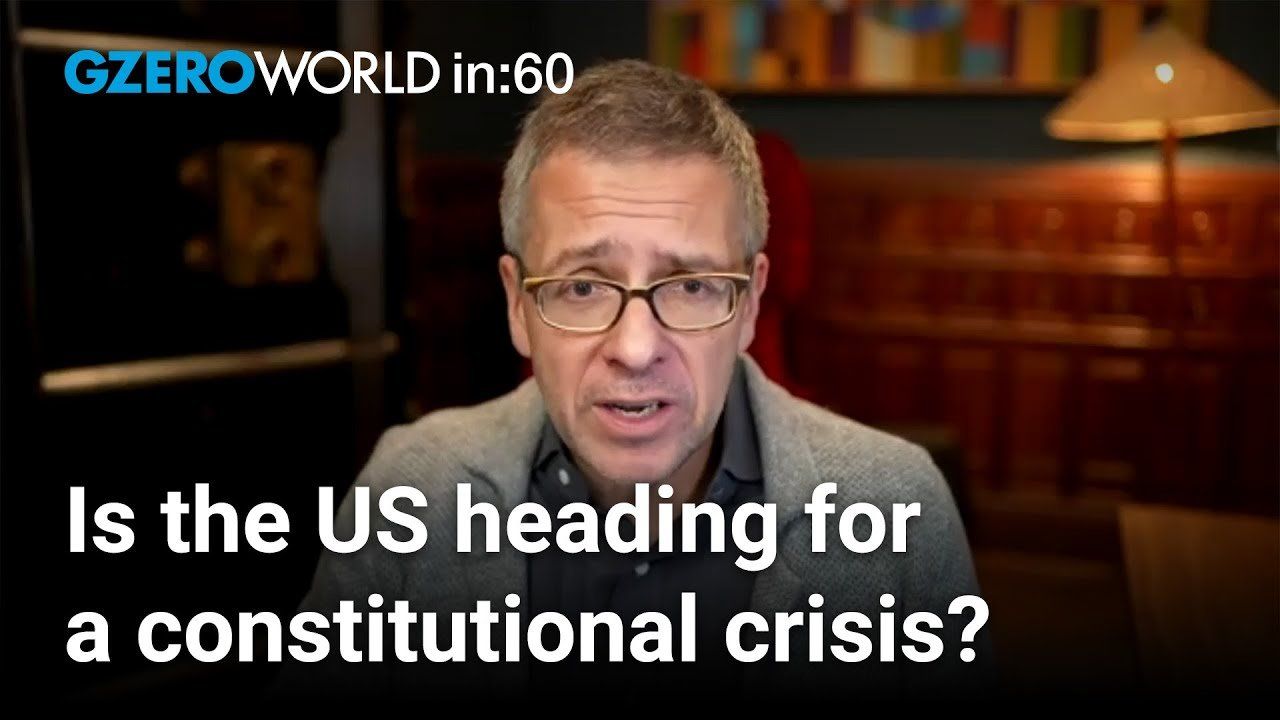Ian Bremmer shares his insights on global politics this week on World In :60.
If the US won't work to return a wrongly deported man to El Salvador despite a Supreme Court ruling, are we headed towards a constitutional crisis?
It certainly appears that way, and I think this is the constitutional crisis that the Trump administration would love to have. Because wrongfully deporting someone without evidence who is in the country illegally and therefore guilty of a misdemeanor, but sending them to a max security prison, which the Supreme Court says you shouldn't do, but now is in another country. Very few Americans are sympathetic to the case of this person. And indeed, Trump won on the basis in part of being sick and tired of allowing illegal immigrants to spend enormous amounts of time in the United States without recourse.
So he's breaking the law here. He's flouting independent judiciary and their decision-making, but he's doing it on an issue that most Americans have no sympathy on the other side. So the Democrats would have to be very wary of making this a hill they want to die on, and Trump knows exactly what he's doing. It is pretty impressive playbook for undermining rule of law and checks and balances on an increasingly authoritarian leaning executive. That's where we are.
Trump claims China-Vietnam talks are intended to "screw" the US. Does this run the risk of pushing Vietnam to China?
Certainly, most Vietnamese now are more well-disposed towards China than the US. First time we've seen that since the war. It's not true across Southeast Asia. Philippines, about 80% still pro-US, not pro-China. But it is a problem, and Xi Jinping understands that. And that's why he went in and was received directly by the president as opposed to the prime minister last time who met him at the airport. 45 big deals that they're signing on trying to improve economic coordination. Clearly a bit of a surprise to Trump, just as the direct retaliation from the Chinese, even though the Americans warned them, "Negotiate, don't retaliate." But that's exactly what China did, and Trump frankly should have expected that was coming. Now he looks a little bit weaker in the way he's backing down and creating exemptions for a lot of people in this space.
Saudi Arabia plans to pay off Syria's World Bank debt. Could this be a major turning point for Syria's future and its ties with regional allies?
It certainly helps. We've also seen the Qataris already say they're going to offer gas through Jordan into Syria. I think that this is all promising. The Saudis were never going to do that, provide any support as long as Assad was in place. Now they are. The Americans are pulling troops out, and Turkey is going to be the most important country on the ground. But economically, it's going to be the Gulf States, and that gives this new Syrian regime a better chance to succeed. Something we all clearly are rooting for in terms of one of the places that we'd like to see a little more stability from. Anyway, that's it for me, and I'll talk to you all real soon.
- Zelensky snubs China’s peace push, Trump vows to end war “very quickly” ›
- China’s vows to pump up its economy — with one eye on Trump’s tariffs ›
- El Salvador's president wins big. What does this mean for the country and its neighbors? ›
- El Salvador's Bukele refuses to return wrongly-deported Maryland man, and offers to jail US citizens too ›
More For You
On Ask Ian, Ian Bremmer breaks down the steady escalation of US pressure on Venezuela and why direct military action is now a real possibility.
Most Popular
Global conflict was at a record high in 2025, will 2026 be more peaceful? Ian Bremmer talks with CNN’s Clarissa Ward and Comfort Ero of the International Crisis Group on the GZERO World Podcast.
On Ian Explains, Ian Bremmer takes a look at the growing surge in global conflict and the ripple effects of so much violence, war, and armed struggle throughout the world.
A year into US President Donald Trump’s second term, America’s immigration policy has undergone one of its most sweeping resets in decades.
